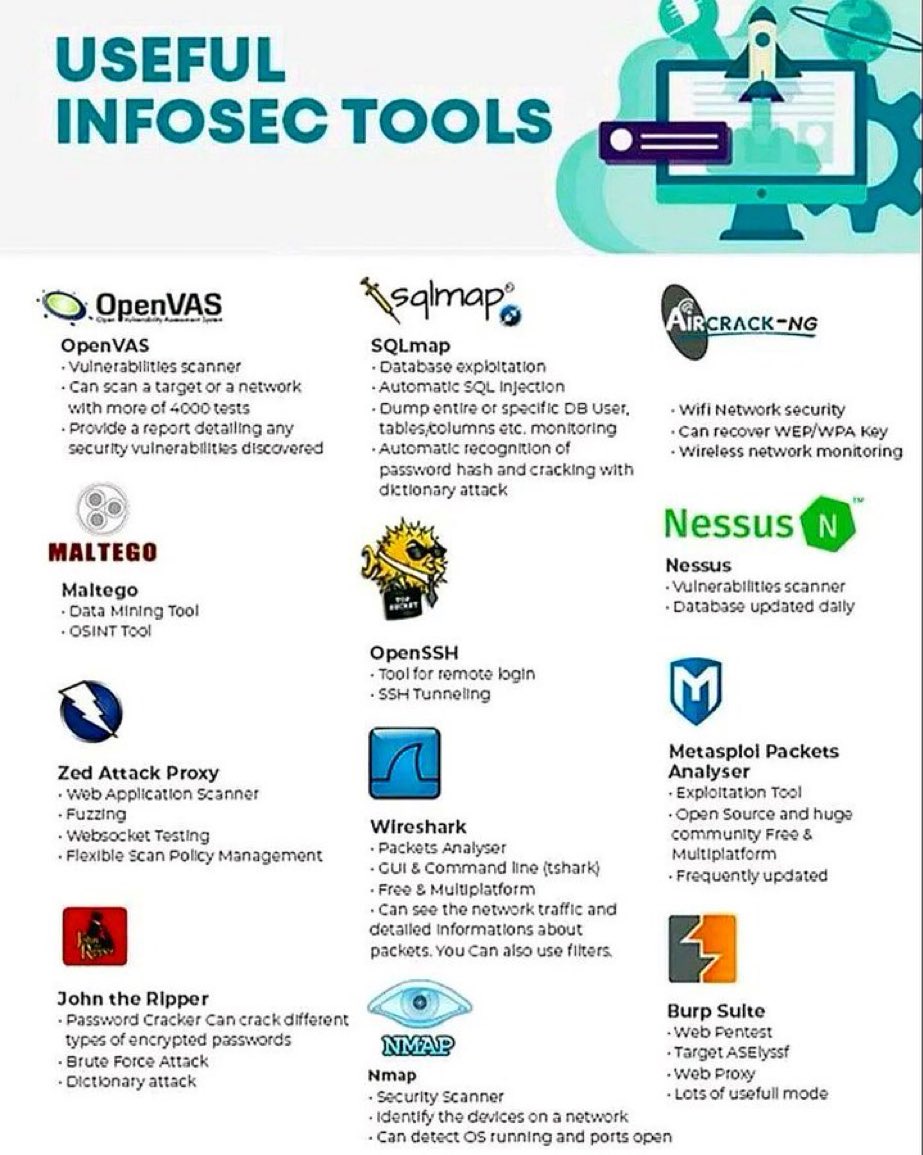Useful Infosec Tools: A Comprehensive Guide

Categories:
3 minute read
Introduction
In today’s digital age, where cyber threats are becoming increasingly sophisticated, having a robust cybersecurity arsenal is essential for individuals and organizations alike. This guide provides a comprehensive overview of some of the most useful infosec tools that can help you protect your systems and data from vulnerabilities and attacks.
Scanning and Vulnerability Assessment
OpenVAS: A popular open-source vulnerability scanner that can scan a target or a network and provide detailed reports on any security vulnerabilities discovered.
Nessus: Another powerful vulnerability scanner with a daily-updated database and a user-friendly interface.
Nmap: A versatile network scanner that can identify devices on a network, detect operating systems, and identify open ports. Database Security
sqlmap: An automated SQL injection tool that can be used to exploit databases and extract sensitive information.
Metasploit: A powerful exploitation framework that can be used for various attack vectors, including database exploitation. Wireless Network Security
Aircrack-ng: A suite of tools for wireless network security, including WEP/WPA key recovery and wireless network monitoring. Password Cracking
John the Ripper: A versatile password cracker that can crack different types of encrypted passwords using brute force and dictionary attacks. Web Application Security
Zed Attack Proxy (ZAP): A web application scanner that can be used for fuzzing, websocket testing, and flexible scan policy management.
Burp Suite: A comprehensive web application security platform that includes a proxy, scanner, and intruder tool. Network Analysis
Wireshark: A popular packet analyzer that can be used to capture and analyze network traffic.
Maltego: A data mining tool that can be used for OSINT (Open-Source Intelligence) and network analysis. Additional Tools
OpenSSH: A secure shell protocol that can be used for remote login and SSH tunneling.
Metasploit Packets Analyzer: A tool for analyzing Metasploit packets. Choosing the Right Tools
The best infosec tools for you will depend on your specific needs and expertise. Consider the following factors when selecting tools:
Functionality: What features do you need?
Ease of use: How easy are the tools to learn and use?
Cost: Are the tools free or paid?
Compatibility: Are the tools compatible with your operating system and other software? Best Practices for Using Infosec Tools
Stay up-to-date: Keep your tools and software updated to ensure they are protected against the latest threats.
Use multiple tools: Don’t rely on a single tool for all of your security needs.
Educate yourself: Learn how to use the tools effectively and stay informed about the latest security threats.
Regularly assess your security posture: Conduct regular vulnerability assessments to identify and address any weaknesses in your systems. Conclusion
The tools discussed in this guide are just a few of the many options available for protecting your systems and data. By understanding the different types of tools and choosing the right ones for your needs, you can significantly improve your organization’s security posture. Remember, cybersecurity is an ongoing process, and it’s important to stay vigilant and adapt to the ever-evolving threat landscape.
Feedback
Was this page helpful?
Glad to hear it! Please tell us how we can improve.
Sorry to hear that. Please tell us how we can improve.